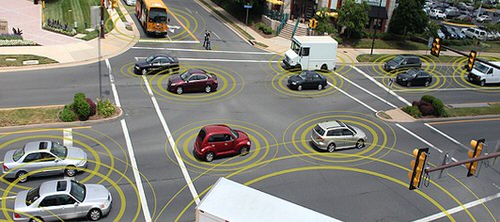Researchers want to cut autonomous car testing time by 99%
Researchers want to cut autonomous car testing time by 99%

Researchers out of the University of Michigan believe they have developed a process by which autonomous cars can be tested thoroughly in a fraction of the time. In fact, their proposal would reduce autonomous car testing time by as much as 99%.
Autonomous cars are coming, but how soon depends on factors like regulation, development, and testing. Testing is one of the most time-consuming steps in the process of innovation and going to market with an autonomous or semi-autonomous vehicle.
See also: New study shows even just a few driverless cars really helps
Regulatory red tape aside, it takes a long time to test autonomous vehicles. Google, one of the early innovators in self-driving car technology has logged over 3 million miles during its extensive testing period has been going on for years. Last year, Google’s self-driving car project received a new name, Waymo.
This 3 million miles of testing doesn’t include the over 1 billion miles that have been logged on Waymo’s virtual testing simulator during 2016 alone.
For anyone keeping count, that’s a lot of testing. In an industry where sub-par testing can have catastrophic consequence, cutting corners is not an option.
A new testing process
In an Mcity white paper published by the University of Michigan, a team of researchers have developed what they believe is a far more efficient way to test autonomous vehicles.
The proposed approach to testing would reduce the amount of testing needed by a factor of 300 to 100,000 so that an automated vehicle driven for 1,000 test miles can yield the equivalent of 300,000 to 100 million miles of real-world driving.
Where current autonomous vehicle testing occurs during real-world driving which is largely uneventful, the car’s ability to respond to critical scenarios only come around once every 100,000 miles of driving. That’s a lot of wasted miles from a data standpoint.
Instead, this process would subject vehicles to worst-case scenarios more rapidly and in a controlled environment. By breaking down difficult real-world driving situations into components that can be tested or simulated repeatedly, researchers can better uncover any problem areas that need to be addressed.
By creating repeatable modules, the team believes they can yield as much actionable data as would be collected in 100,000 miles of driving in just 1,000 miles.
They need to be nearly human
The paper’s authors state that an autonomous vehicle needs to be at least 90% safer than the typical human driver for us to accept them on our roadways in mass. That takes a lot of research and testing. At the current pace, that level of confidence would be achieved after 11 billion miles of testing. That would take over a decade to complete.
By evaluating the data already collected from 25 million miles of real-world testing, the researchers have compiled a series of modular tests which they believe will cut the required testing time down by as much as 99%.
For folks eagerly anticipating the day when they can kick back and watch Netflix while their car drives them to work, this is good news.
The post Researchers want to cut autonomous car testing time by 99% appeared first on ReadWrite.
(17)


